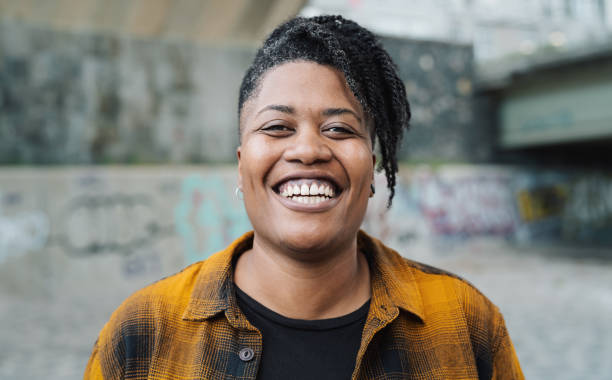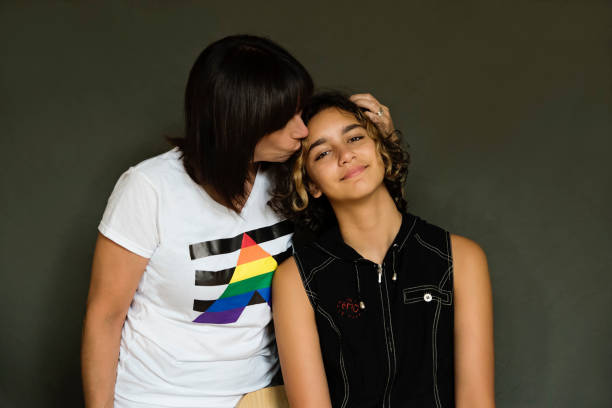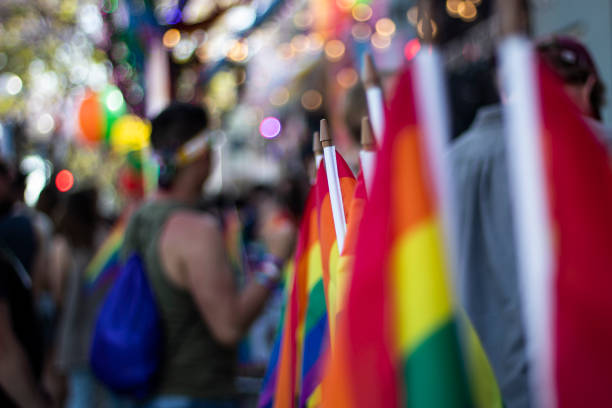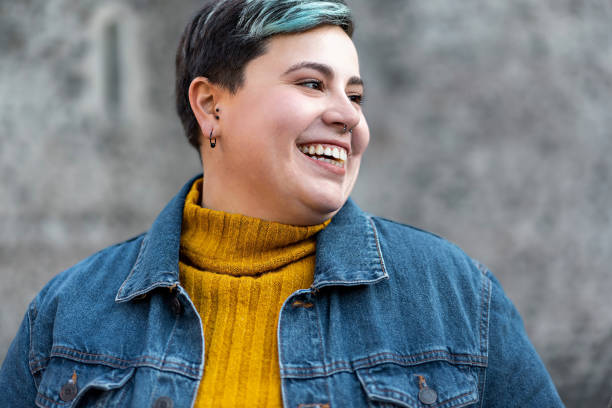
In a world that is gradually expanding its understanding of gender identity, the experiences of non-binary individuals, especially young adults, often remain in the shadows. As we strive for inclusivity and acceptance, it’s crucial to shed light on the unique challenges faced by those who identify outside the traditional gender binary (male and female, or men and women). One such challenge is Gender Minority Stress, a term that encompasses the emotional and psychological toll that societal expectations, discrimination, and lack of understanding can take on non-binary individuals.
Many different cultures view identity on a spectrum, wherein the idea of “one or the other” simply doesn’t exist. In asserting a binary onto the public, our society begins with a baseline of single-mindedness when it comes to the issue of non-binary (enby), genderqueer, and fluid individuals. For those individuals who belong to cultures that do not see “gender” or identity markers in those terms, there can be a double-erasure of identities. For all gender non-binary folks, it is a struggle to be understood and protected as individuals.
Gender Minority Stressors
Gender Minority Stressors refer to the specific challenges and pressures that non-binary individuals face due to societal norms and expectations. These stressors can manifest in various aspects of life, from interpersonal relationships to professional environments.

- Lack of Visibility and Representation: feelings of isolation and invalidation, feeling ignored or erased from the public consciousness, not feeling you have an advocate in the government and judicial system.
- Discrimination: being rejected from jobs, not receiving equal and adequate health care, being excluded by community organizations, and unstable housing.
- Microaggressions: being “forgotten” when coworkers are making plans outside of work, being questioned about your identity in ways that don’t seem to be in good faith, receiving different etiquette than binary-conforming individuals, being ignored or spoken over, being made to feel like an inconvenience when you need a slightly different accommodation.
- Pressure to conform to binary norms: overt bullying tactics to try to force you to present a different way; microaggressions leading you to the knowledge that your circumstances would improve if you were to conform, ie. Better upward mobility at work, public safety.
- Fear of rejection or misunderstanding: anxiety, depression, and a compromised sense of self-worth
3 Ways to Overcome Gender Minority Stress
1) Cultivate Self-Compassion:

Practice self-care routines, affirmations, and mindfulness exercises to build resilience and strengthen your sense of self-worth. Self-confidence not only allows you to advocate for yourself and pursue your goals, but it also contributes to a sense of resilience when mishaps happen – and they do inevitably happen. Building and maintaining self-confidence is an invaluable ongoing life strategy.
Self-compassion is a cornerstone of self-care and a great skill to learn as soon as possible in life. What self-compassion looks like from individual to individual can vary. Sometimes, exploring that idea in therapy happens for the first time here at our practice of young adult therapy in Woodland Hills. If you’ve never really taken the time to consider how that looks for you, you may find that you discover new things about yourself in the process.
Part of self-compassion is re-writing past narratives. If you have struggled to fit in or struggled to obtain acceptance for being your own individual self, you may have received disappointing messaging from caretakers and/or people of authority. The sad thing about that is that someone else’s choices become work that you have to do. This can feel unfair, and it is. Sometimes, we get caught up in the injustice of having to heal from others’ mistakes, and we delay doing the work out of defiance. In these times, it is helpful to remember that they have already done their damage in the past, and it cannot be changed. The future, however, is yours. If their harm continues, they continue to win. If you take a stand for yourself and release their harm, you are the one who comes out ahead.
Therapeutic work like Cognitive Behavioral Therapy (CBT) can go a long way toward writing a new story for yourself. CBT allows you to look at your thoughts and feelings and identify which ones aren’t helpful. Through the process of changing your thought patterns and modifying behaviors, you are able to experience more positive thoughts and emotions overall. It doesn’t mean that you’ll never have a bad day; it means that you’ll be able to identify a bad day as something that happens in life and move forward without it taking out an entire week or month. When we take responsibility for our thoughts and actions, we see mishaps as unfortunate incidents as opposed to a permanent condition of our lives.
Self-compassion and self-care have a symbiotic relationship; it’s hard to have compassion for someone you don’t care about, and it’s hard to take care of someone you don’t feel compassion for. Creating and maintaining a self-care routine is a great way to bolster your self-compassion. You may find that certain self-care rituals increase dysphoria, so this is a great way to really consider what makes you feel most comfortable and secure in your body. What activities feel the most aligned with who you truly are? How can you lean into those in order to make your self-care more rewarding? If some of the self-care basics trigger dysphoria, are there ways to get through them differently to reduce their impact? Are you able to develop strategies to become more used to them and lessen their harm? How can you be gentle with yourself about these struggles? How will you speak to yourself about them? Which kind words will you utilize in order to show yourself compassion?
2) Advocate for Inclusivity:

Never tell yourself that you don’t have the right to do work that benefits you. Don’t be afraid to use your voice to advocate for inclusivity in various aspects of life. By actively participating in advocacy efforts, you contribute to creating a more inclusive and supportive environment for everyone. You are permitted to want a better life for yourself and to fight for it. That’s how all social justice movements begin!
There are many ways to become involved in advocacy work, and how you choose to do so is your business and no one else’s. Whether you make a point of researching the issue and educating those closest to you, whether you share on social media, whether you sign petitions and write to your government representatives, whether you fundraise, whether you march and rally, your work matters. Taking a stand in your own defense is justified. Taking a stand in defense of others is justified. There are rights to protest, to speak out, and to petition the government protected by the First Amendment of the Constitution of the United States. This, along with nine other Amendments, constitutes the Bill of Rights.
Advocacy work can be both empowering and fatiguing. When you take the step to join with others to call for more equality, you take a step of self-love that validates your existence. You also have the opportunity to meet more people like yourself, who think the way you do and have shared experiences. This can be an incredibly joyful thing. You will also experience times of sadness, anger, and frustration; having to “convince” people of your human rights can feel demoralizing. On top of this, there is sometimes a safety risk of showing up and making noise about an issue. This is why joining a group or organization provides the protection of solidarity and of people whose emotional shared experiences can be of comfort. You are under no obligation to stand alone and speak out in a way that makes you vulnerable to abuse.
You may tend to find that advocacy for marginalized groups overlaps quite a bit; the people you come across in the LGBTQ space are also in the disability advocacy space, the BIPOC advocacy space, and more. This intersectionality creates a diverse (and large) group of folks who are all seeking the same recognition, validation, safety, and protection outside of oppressive ideologies.
Advocacy work can be empowering and exhilarating but also confusing and heartbreaking. If you are just getting into it, you may find yourself struggling to set aside your advocate brain on your personal time or to even take personal time at all. We talk about this in therapy for young adults and in therapy for folks of all ages; no one is immune from becoming involved in ways that can cause harm. Ensure that you are advocating for yourself by making time to just exist without advocating. This is a privilege experienced by those who fit the descriptors of what we have made normative in society; part of advocating for yourself is giving yourself permission to “clock out” of suffering and celebrate your everyday life. This is how you refuel and remain connected to what motivates you in the first place.
3) Build a Supportive Community:

Seek out local or online communities where non-binary young adults and adults of all ages share their experiences, offer support, and foster a sense of belonging. Building a support system can provide a safe space to discuss challenges, share coping strategies, and celebrate personal victories. Folks your age will relate to the society you’ve been socialized in, folks who are older will have lived experiences that they can share.
As you make your way into community spaces, be sure to have an understanding of what your boundaries are. You may wish to keep some things private, and that’s okay. Everyone has different levels of comfort when it comes to sharing their experiences, their location, their life outside of the community, and more. You may also find that you need to set boundaries with yourself about how you show up for others. Of course, you will want to be of help and service, but it cannot come at your own expense when it comes to your health and safety. Setting these boundaries is how you provide yourself with care, and it is also a good way to alert yourself that you may need to reach out for other support if something that is pushing a boundary comes up.
A community is a great network of people who can provide basic necessities for folks who experience discrimination and destabilizing events. Young members of the LGBTQ community are often at risk of losing their housing when their parents don’t respect their identities. LGBTQ folks of all ages are at risk of employment discrimination that can lead to loss of income. A community can provide an emergency place to sleep or a meal train during a lean month. It can provide resources for finding a new home, funding, or places of employment. A community is a network of information, and information is power.
The great thing about communities of people from similar walks of life is how free we can be when sharing our hopes and dreams. Too often, in other spaces, we have to choose our words carefully. This is a post-college experience that is experienced more acutely by folks who exist outside whiteness, maleness, heteronormativity, the gender binary, and those who are disabled and/or neurodivergent. We have to experience the minimizing of our pain from people don’t who don’t understand it. We have to navigate microaggressions that go unnoticed by others; we absorb them and feel isolated when the people around us don’t speak up for us. Being able to drop the walls and speak freely in the community, to be met with understanding, is liberation.
You deserve to exist in a space that celebrates who you are, just as you are. You deserve to have dinners with friends, visits to museums, and walks in the park that are full of laughter and inside jokes, and peace of mind. There is so much joy to be found in connecting with one another. It is a wonderful thing to have inconsequential moments where you are just living your life in an authentic way.

The fight for equality has a way of imposing martyrdom on the people doing the fighting. You are under no obligation to disclose that you are non-binary in unsafe spaces. It is not a moral or personal failure to keep yourself safe. The actual resistance is to live and live well. Through advocacy work, hopefully, there will come a time when there is no such thing as an unsafe space for non-binary folks. Meanwhile, the work to be done involves what you personally can control: how you speak to yourself, how you care for yourself, how you navigate difficult times, and how you create joy in your life. There are very real struggles that accompany being non-binary, and you have the right to work through them and to both accept and resent that they exist. You have the right to celebrate your individuality and the power that comes with self-confidence, self-love, and self-care. The power that comes when people join together for human dignity and the pursuit of true equal human rights for all. The stress of being a gender minority is real, but so is the beauty and humanity.
Therapy for Young Adults in Woodland Hills
If you are between the ages of 18 and 26, you may want to have a therapy experience that is specialized to you, your unique journey, and the current phase in your life. Therapy For Young Adults in Woodland Hills aims to encompass all the challenges and beauties of being a young adult. We want to learn about your feelings, thoughts, the things that keep you up at night, and what you want to achieve for yourself. When you begin Therapy For Young Adults in Woodland Hills, you can learn the skills you need to feel more resilient and develop authentic relationships with yourself and others. Contact us today for your complimentary 20-minute phone consultation with our Admin Team today!




